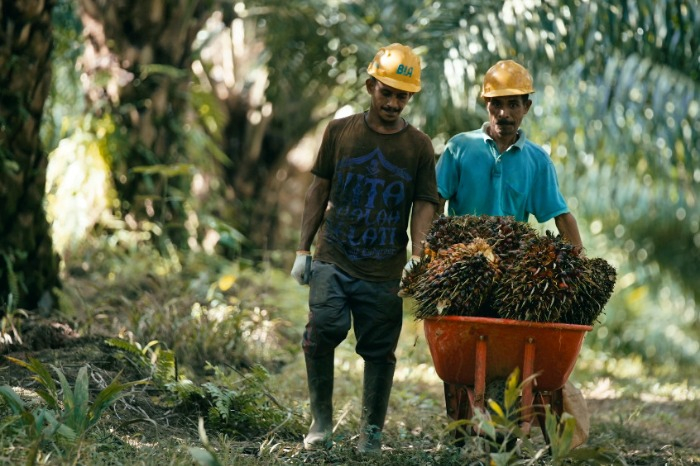POSCO International aims to join Top 10 global food enterprise
It plans to acquire 860,000 hectares of farmland by 2030 through investments
By May 04, 2023 (Gmt+09:00)
LG Chem to sell water filter business to Glenwood PE for $692 million


Kyobo Life poised to buy Japan’s SBI Group-owned savings bank


KT&G eyes overseas M&A after rejecting activist fund's offer


StockX in merger talks with Naver’s online reseller Kream


Mirae Asset to be named Korea Post’s core real estate fund operator



POSCO International Corp., the general trading and energy exploration unit of South Korea’s steel giant POSCO Holdings Inc. , has unveiled an ambitious blueprint for its food business aimed at propelling the company to join the ranks of the world's top-10 food enterprises.
The plan outlines a strategy to acquire 860,000 hectares of farmland by 2030 through investments, establish a production capacity of 7.1 million tons and achieve a processed grain capacity of 2.34 million tons.
The targeted land area is about 15 times the size of Seoul. To secure grain assets, POSCO International intends to partner with agricultural companies in key food-producing regions such as Australia, North America and South America. The company has already inked a deal with Australian company Hancock in December and is eyeing a 250,000-hectare wheat cultivation area.
POSCO International also aims to attain an annual production capacity of 5 million tons of grains in the northern Black Sea region, 1 million tons in South America and 500,000 tons in Australia, along with 600,000 tons from Central Asia and Southeast Asia. To ensure a 3-million-ton annual production capacity in the US, the world's leading grain producer, the company plans to establish a local procurement system in collaboration with a top-tier firm.
Leveraging its secured grains, POSCO International aims to enter the processing field and manage 2.34 million tons of processed grains, thereby boosting profitability. In February, the company joined forces with Daesang Corp., Korea's largest corn starch producer, to expand its corn starch business in Vietnam. It also plans to pursue aggressive investment strategies, such as seeking partners for soybean oil extraction in the US.
POSCO International's food business portfolio spans grains, palm oil and cotton. Its Indonesian palm farm generated an operating profit of around 100 billion won ($75.4 million) last year. The company aims to extend its value chain by enlarging palm farms on Kalimantan Island while adhering to global environmental standards.
In the cotton sector, POSCO International secured a 5,200-hectare cotton cluster in Uzbekistan—18 times the size of Yeouido, Seoul—and set the groundwork for vertical integration from cotton farming to product manufacturing. The company envisions expanding cotton cultivation to 50,000 hectares and bolstering profitability through phased investments in oil extraction and cotton processing equipment upgrades.
"By completing the food business value chain, which is one of POSCO Group's seven core businesses, and enhancing national food security through the quantitative and qualitative growth of its food operations," a POSCO International source said. "We will commit to becoming a global food powerhouse."
Write to Jae-Fu Kim at fu@hankyung.com
-
 Food & BeveragePOSCO Int'l, Daesang sign MOU to cooperate in food business
Food & BeveragePOSCO Int'l, Daesang sign MOU to cooperate in food businessFeb 24, 2023 (Gmt+09:00)
1 Min read -

-



